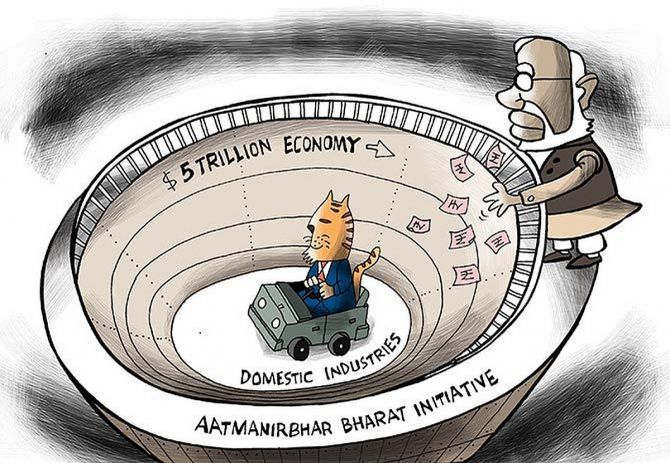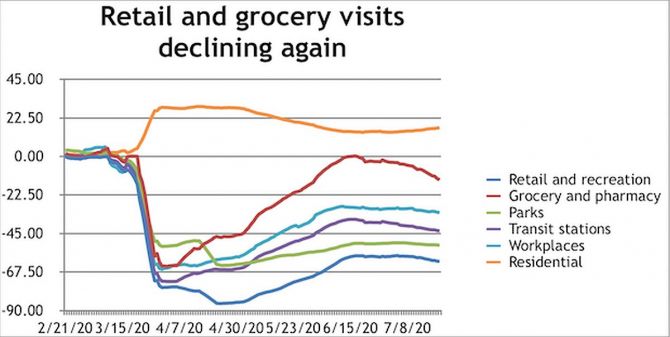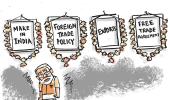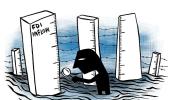Mumbai traffic, mobile internet speeds, and grocery and pharmacy visits are all showing lower numbers for the latest week.

The growth in economic activity, which had shown signs of moderation as set in July, is now showing signs of decline.
Mumbai traffic, mobile internet speeds, and grocery and pharmacy visits are all showing lower numbers for the latest week.
Business Standard tracks these and other high frequency indicators to understand how the economy is doing as it deals with the Covid-19 pandemic.
Analysts across the world began to use similar metrics to get a sense of the situation on the ground ahead of the release of official data.
Numbers such as trade figures and gross domestic product (GDP) appear with a lag, and are available monthly or quarterly.
Indian analysts also used such indicators after the lockdown was announced in March.
Business Standard tracks power generation, freight, pollution and traffic congestion, in addition to internet speeds and Google’s mobility reports.
Most figures are for Saturday or Sunday.
Internet speeds and Google’s mobility reports appear with a lag.
The gap in power generation has begun to widen again, showed data leading up to Sunday.
The gap had narrowed to less than 2 per cent of last year’s figures on July 20, based on a seven-day rolling average number.
This has now widened to over 7 per cent (see chart 1).

Google tracks people’s location and builds a profile of visits to various places.
People had begun going to retailing and recreational spots more after the lockdown was lifted.
Grocery and pharmacy visits were almost back to normal shows data as of July 21.
Retail and recreation visits have trended to levels last seen in the second week of June.
Grocery and pharmacy visits are back to May-end levels (see chart 2).

Global internet tracker Ookla compiles information on mobile and fixed internet.
India’s fixed internet saw a decline in speed for the week ending July 19, though it still remains high.
Internet speeds decline when more people are at home as video calls and entertainment tend to lower internet speeds.
Mobile internet speeds fell to May-end levels (see chart 3).

Indian Railways showed a 6.33 per cent decline in the quantity of goods it carried.
Freight earnings were down nearly 12 per cent.
The figures are for the 7 days ending Sunday.
The previous week’s figures are for 7 days ending Saturday.
It had shown a 2.9 per cent decline in goods carried and a 7.7 per cent decline in earnings.
The latest numbers suggest a decline. (see chart 4).

Delhi traffic showed signs of more congestion for the week ending Sunday, according to data from location technology firm TomTom International, while Mumbai’s congestion eased.
The city now sees 70 per cent less congestion than normal reversing a slight improvement seen over the recent weeks.
This suggests that the financial capital may be showing lower activity than before as evidenced by fewer cars on the road (see chart 5).

Pollution numbers also point to a similar trend.
Business Standard tracks nitrogen dioxide levels, which go up when industrial or vehicular activity rises.
It is down by around 22 per cent in Delhi compared to the same period last year.
It is down over 90 per cent in Mumbai, based on a 7-day rolling average for the days leading up to July 26.(see chart 6,7).













